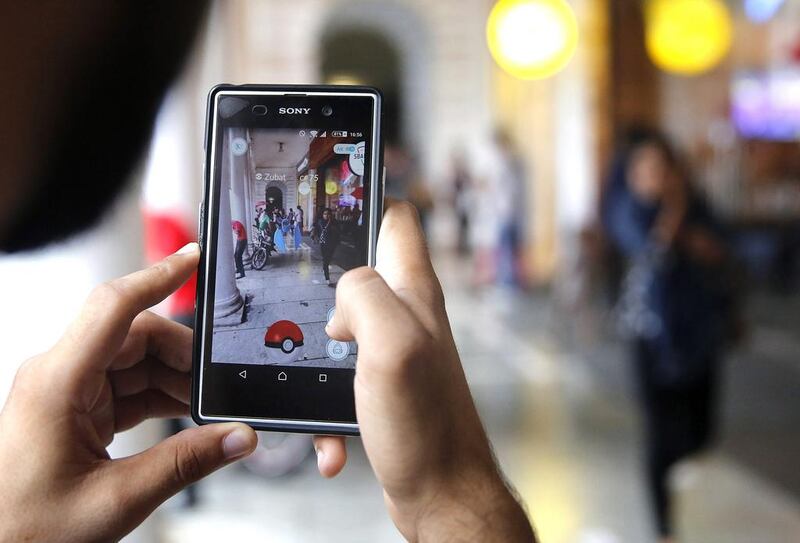JERUSALEM // The Israeli military has warned its soldiers about a new threat: the widely popular mobile phone game Pokemon Go.
The army said on Monday it has banned its forces from playing the game on Israeli military bases due to security concerns. In a directive to soldiers and officers, the army warned the game activates mobile phone cameras and location services, and could leak sensitive information like army base locations and photographs of the bases.
The military is also concerned that soldiers could download a fake application that impersonates Pokemon Go but could leak information from soldiers’ phones.
Pokemon Go players roam streets and buildings holding up their mobile phones and following a digital map to catch creatures that appear on the screen.
For Palestinians living under Israeli occupation, Pokemon Go is a frustrating game to play, because mobile high-speed internet services do not exist in the West Bank and Gaza Strip.
Under interim peace accords, Israel controls wireless networks in the area, and Israel only recently announced that it would allow high-speed internet access in the West Bank, though the technology has not yet gone into effect.
The Palestinians are among a few markets in the world that still use older 2G technology, according to the International Telecommunication Union, a UN agency.
Naim Samsoum, 26, a Gaza-based animator, was one of the first people in the territory to download the game. He said he managed to catch three Pokemons only after installing a costly 2G internet service from the only mobile service provider in Gaza.
“I stopped because it was very expensive for me,” Mr Samsoum said.
He ran into another obstacle: the fourth Pokemon he wanted to catch was located on the premises of the Palestinian Legislative Council, an off-limits government building run by Hamas, the Islamic militant group that controls Gaza.
In Israel, civilians are also being warned about the perils of chasing Pikachu and other digital creatures in the Pokemon Go game.
Israel’s emergency rescue service Magen David Adom said distracted Pokemon players have suffered moderate injuries.
Last week, a 15-year-old girl suffered a head injury after she fell off her bicycle while pursuing Pokemon creatures, and a 35-year-old player ran into a glass door and suffered “massive bleeding” in his legs, Magen David Adom said.
“Apparently the game is not as friendly as we thought,” the statement said.
The AIG insurance company in Israel is taking advantage of the Pokemon craze to market its personal accident insurance policy that covers accidents caused while playing such mobile phone games. Yifat Reiter of AIG said the company has received dozens of inquiries about the accident insurance for Pokemon players.
Meanwhile, the craze continues to spread globally with more than a million people in Moscow playing Pokemon Go, even though the game is not supposed to be available in Russia.
Despite attempts by app developer Niantic to manage global demand, fans in Russia and elsewhere have taken special steps to track down and install Pokemon Go before it’s released officially, a process that sometimes involves tricking their phones into thinking they live in another country. Russian carrier Mobile TeleSystems PJSC estimates that 1.37 million people are playing Pokemon Go on major wireless networks in Moscow, a more than seven-fold increase from a week ago.
Russia’s government is wary of the phenomenon. A spokesman for Russian President Vladimir Putin, suggested in July that playing Pokemon at the Moscow Kremlin and other cultural sites is disrespectful.
*Associated Press and Bloomberg





